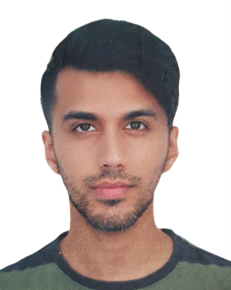In Focus: LKCMedicine refreshes MBBS programme with focus on digital health and expanding medical humanities
 | By Sanjay Devaraja, Editor, The LKCMedicine |

From 2024, students enrolling in the Lee Kong Chian School of Medicine (LKCMedicine) will learn from a refreshed curriculum with more course content related to artificial intelligence (AI) and digital health as these solutions continue to drive healthcare delivery.
More tech-enabled teaching tools will be implemented throughout the five-year Bachelor of Medicine and Bachelor of Surgery (MBBS) degree programme to help students become doctors who are discerning and confident users of technology.
This tech focus will be balanced out by an expanded scope in medical humanities, which trains medical students to be doctors who are agile and adaptable in navigating uncertainties and difficult situations in their practice, and to deliver compassionate and patient-centred care.
In addition, NTU LKCMedicine has adopted the University Clinical Aptitude Test (UCAT) as part of the School’s admissions process, in place of the BioMedical Admissions Test (BMAT), to ensure that students have the personal qualities required for a career in medicine.
This refreshed curriculum comes on the back of the rapidly developing digital age, and aims to expose students to digital health solutions and AI-powered medical technology that are increasingly deployed in the healthcare setting. 
Currently, digital health is a single module that students have to take in their first two years of the MBBS degree programme. From 2024, this will be integrated throughout the five-year curriculum as vertical courses.
These vertical courses will introduce areas such as medical data science, data analytics, and artificial intelligence (AI) to the practice of medicine.
This update to the curriculum will help students develop a firm foundation in the ethical and legal consequences of AI and healthcare informatics and be aware of both its limits and benefits, while providing hands-on exposure to AI and medical technologies such as telehealth, health apps and wearables, and personalised molecular medicine.
More tech-enabled learning tools will also be deployed to enhance learning for LKCMedicine students.
For instance, the School’s anatomy teaching team is piloting a new virtual reality learning tool for the heart in the new academic year to teach first-year students about the cardiorespiratory system. This is on top of the plastinated cadavers, 3D virtual and printed models, and radiological imaging tools that are regularly used in anatomy classes.
Custom-built e-simulators for drug prescription and using electronic medical records (that are currently used in hospital setting) are also being developed to prepare graduating students to be ready for practice as a doctor in hospitals.
This emphasis on digital technologies in healthcare and the use of more tech-enabled learning tools will help to cultivate doctors of the future who are well-versed with such tools and can tap on technology effectively.
Even as digital tools continue to revolutionise the healthcare setting, a doctor’s human touch remains important in the delivery of care. To this end, LKCMedicine will strengthen its emphasis on developing doctors who can manage change and give patient-centred care by expanding the scope of medical humanities in the curriculum.
Training doctors to be adaptable and agile
Medical humanities uses concepts from the Arts, Humanities and Social Sciences disciplines to enable students to manage clinical uncertainty and adapt to changes in healthcare practice.
Currently taught in the first two years of the MBBS degree programme, the medical humanities curriculum is being reviewed and will expand to be integrated across the five years of the MBBS from 2024.
In the new medical humanities curriculum, students will learn concepts, analytical methods and approaches that directly complement and expand upon the biomedical dimensions of clinical knowledge and skill acquisition.
Professor Jennifer Cleland, Vice-Dean (Education), LKCMedicine said, “Medicine is moving at a tremendous rate, with AI and digital health tools increasingly deployed in the clinical setting. Part of the LKCMedicine mission is to produce graduates who can manage this change and adapt to new ways of working, while still keeping the patient at the centre of their decision-making. Through this increased emphasis on using the humanities to learn, students will develop adaptability and resilience, which will in turn help them provide care that is effective and patient-centred.
“For example, as students start interacting with AI in the clinical environment, many may embrace AI and technology as a means of gaining control over medical uncertainty, which may lead to a lower level of patient-centred care. Medical humanities can help to equip them with foundational skills to gain control over uncertainty and help students to critically engage with technology.”
The medical humanities programme builds directly on the School’s strong focus on early clinical and workplace experience within a patient-centred curriculum. It enhances current learning opportunities, such as early patient interaction, hospital and polyclinic placements and the “Long-term Patient Project”, by providing students with conceptual frameworks to analyse and learn from their experiences, and prepare them for their senior years and practice as a doctor.
Change in admissions test
On top of these changes in the curriculum, LKCMedicine has also adopted the University Clinical Aptitude Test (UCAT) as part of LKCMedicine’s admissions process, in place of the BioMedical Admissions Test (BMAT), for cohorts enrolling from 2024.
The UCAT allows the School to assess potential students holistically – both academically and non-academically, including the personal qualities required for a career in medicine, such as compassion, team working skills, problem solving and integrity.
Students who plan to enrol in LKCMedicine next year would have sat for the UCAT by 28 September this year.
